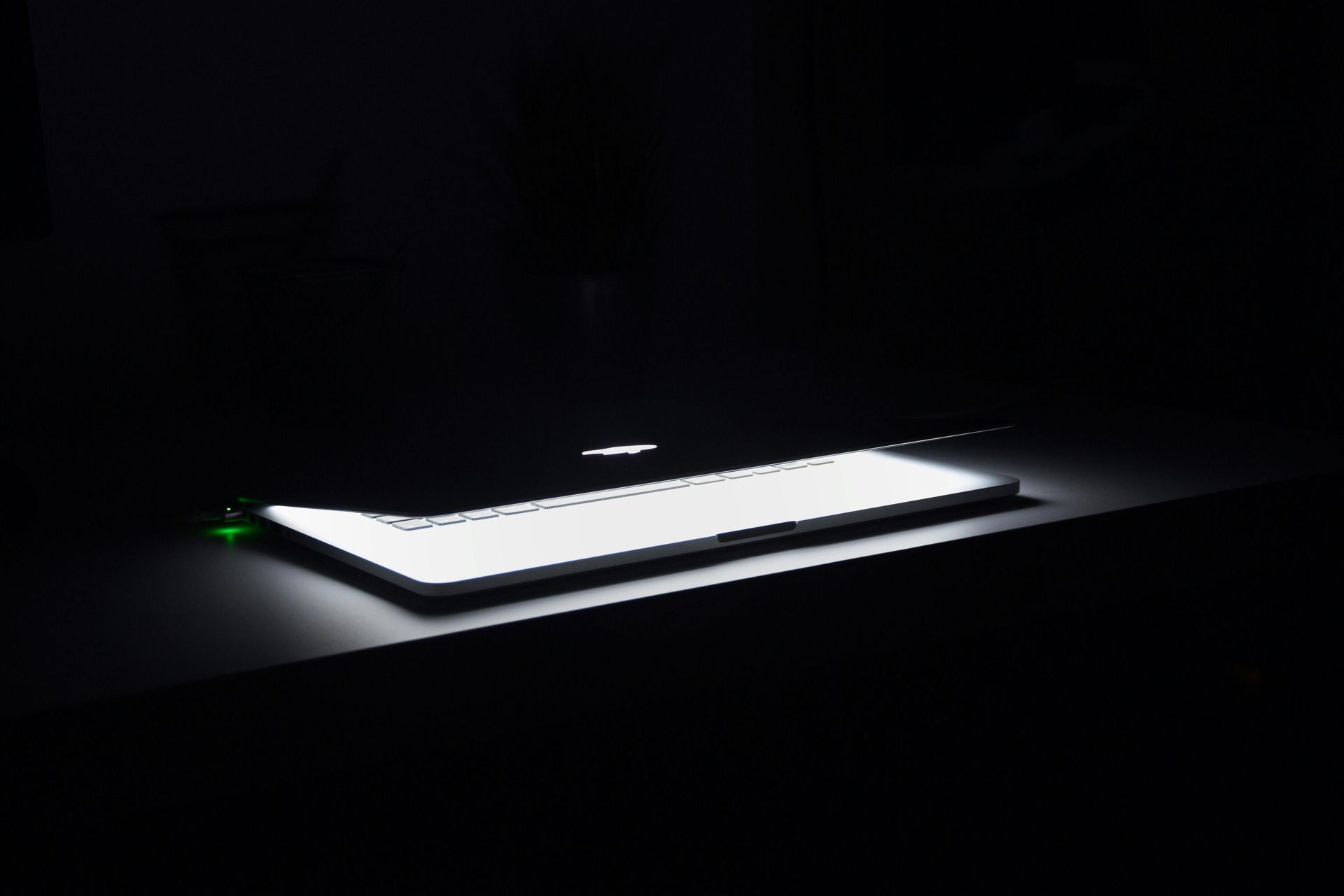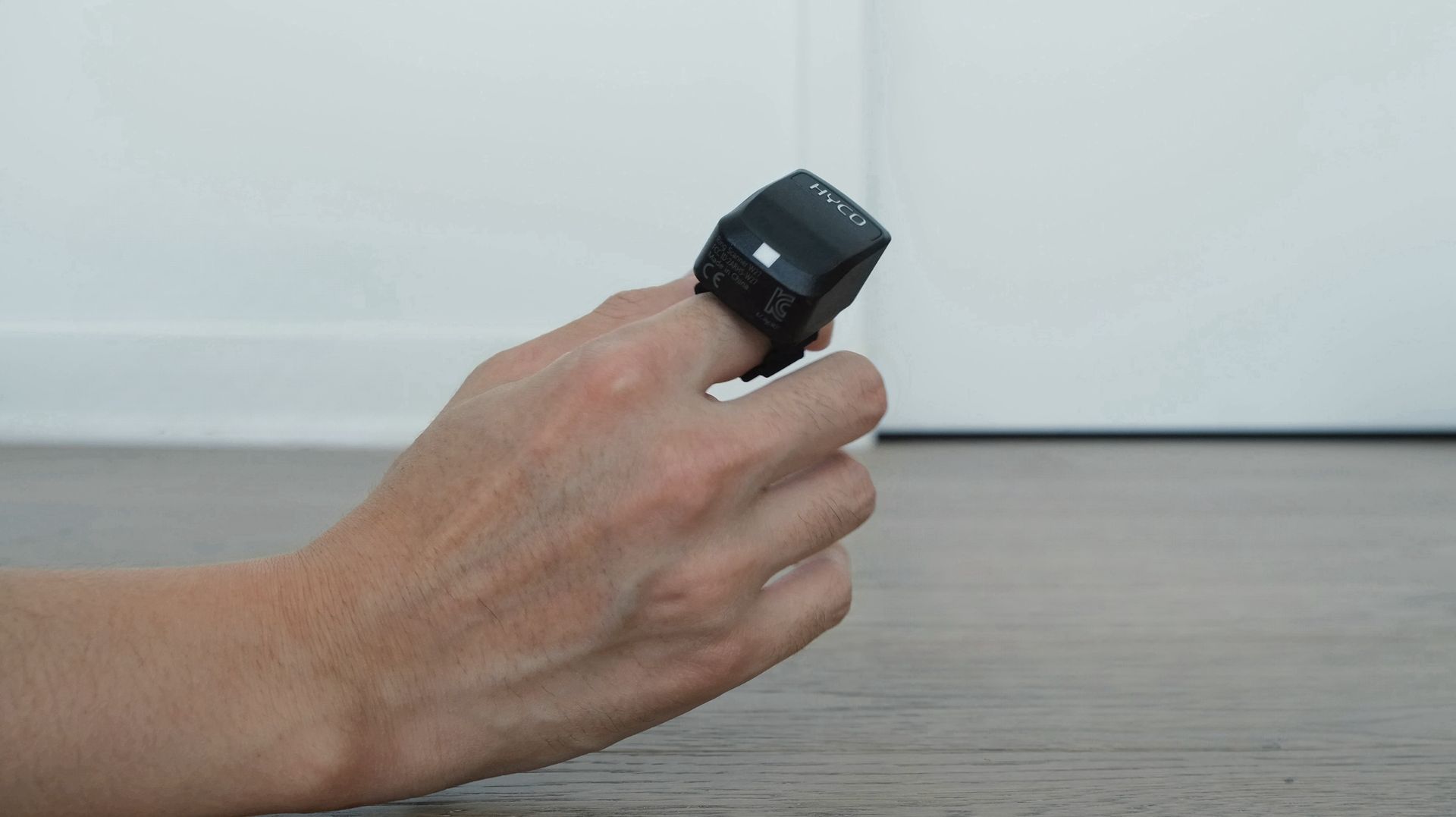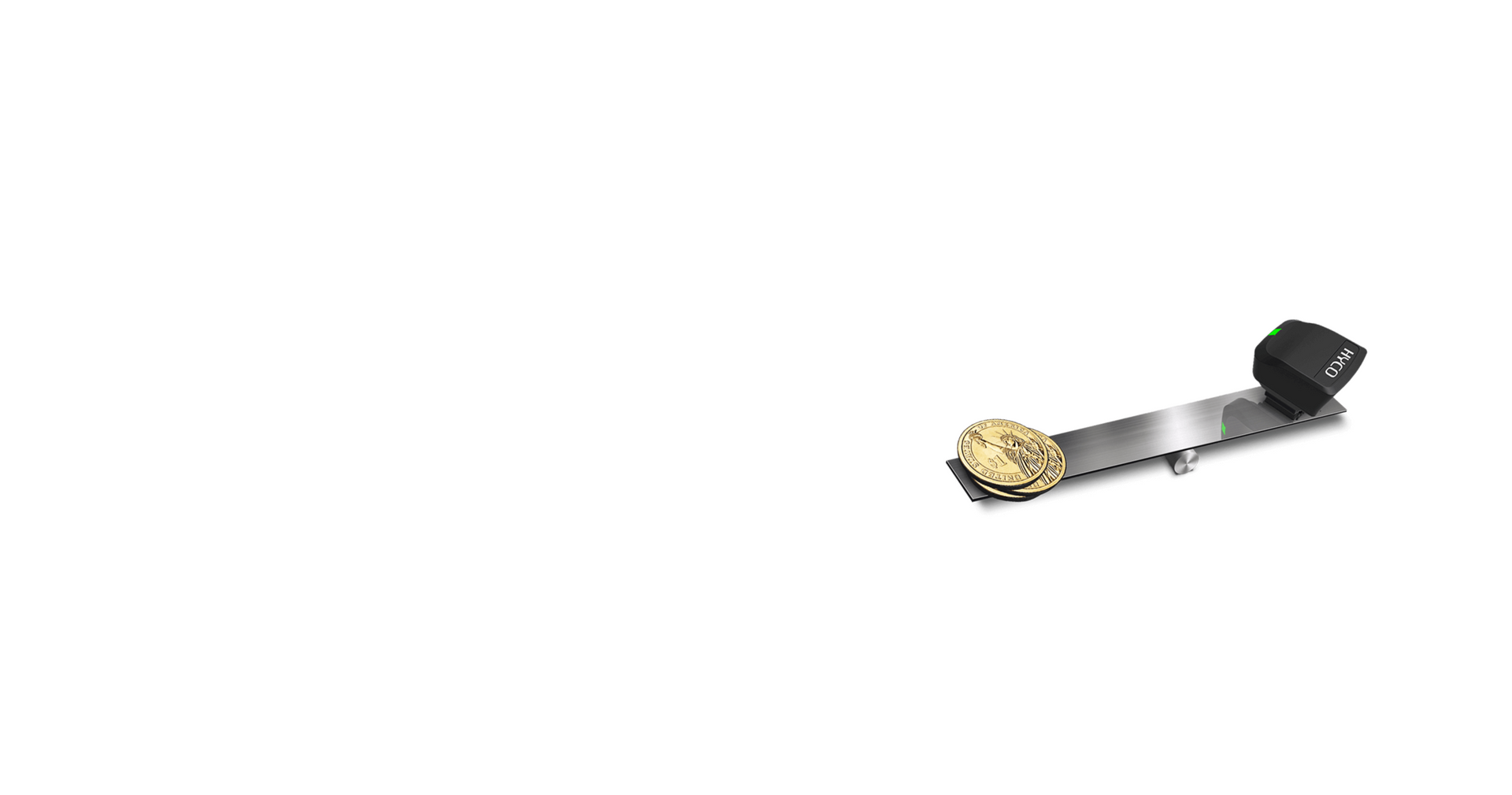The Hub
Keep up with the most recent news, research and events!
News
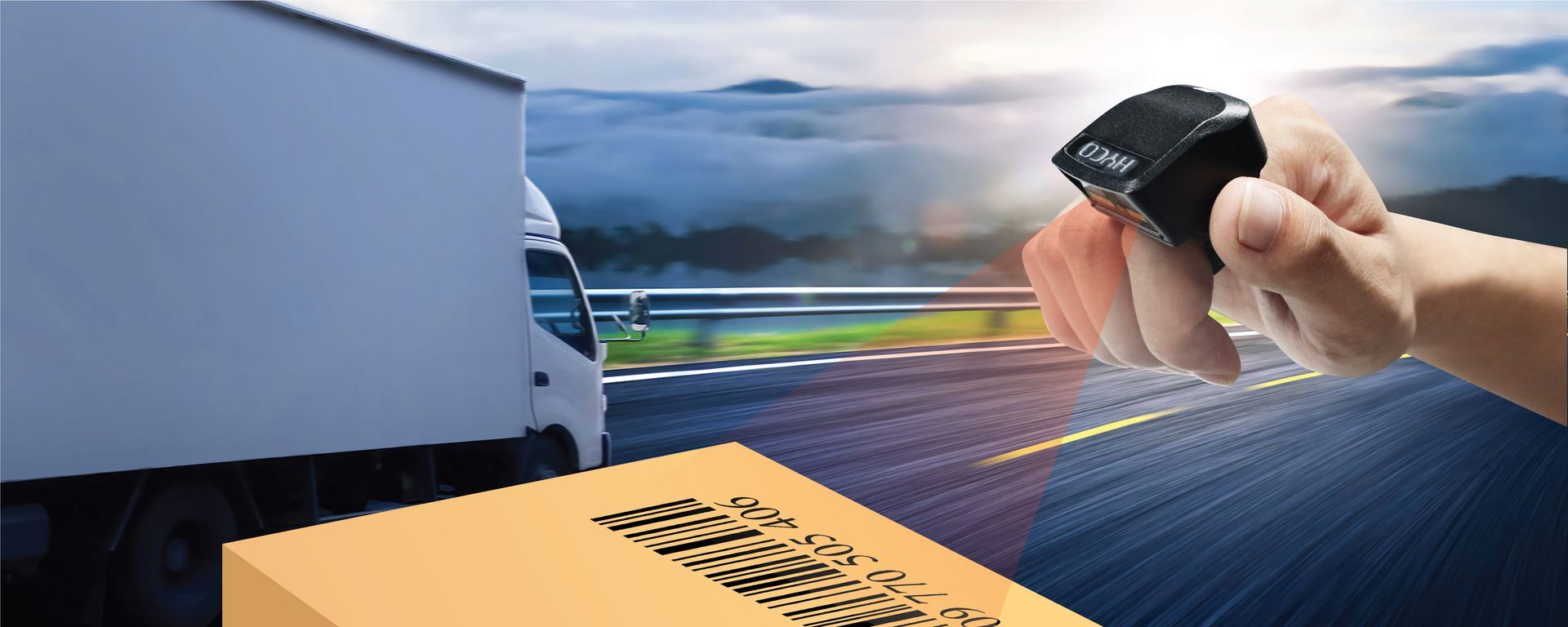
In the era of Industry 4.0 and smart logistics, the competitive edge has shifted from "scale" to "efficiency." Often, the secret to efficiency lies in seemingly small tool innovations—like a ring-shaped barcode scanner. The HYCO Ring Scanner (represented by the W28 model) is a revolutionary tool that redefines traditional scanning with its ultra-lightweight design, powerful performance, and versatile adaptability. It unlocks a new “man-machine integration” work mode for industries like warehousing, logistics, and manufacturing.

Ottawa, March 21, 2025 — Lotwork has successfully concluded its exhibition at ProMat 2025, North America’s premier supply chain and logistics event. From March 17 to 20, Lotwork welcomed attendees to experience its latest wearable technologies and ultra-low-power consumption IoT innovations designed to boost efficiency and comfort in warehousing and debuted the innovative last-mile delivery solution from GHE: https://www.ghelmd.com/ . At this year’s event, Lotwork proudly returned as a Student Day Supporter , continuing its commitment to nurturing the next generation of supply chain leaders. Our team was thrilled to engage with students, professionals, and industry leaders alike, exchanging insights on how human-centred technology is transforming operations across the sector. We thank everyone who visited our booth and look forward to building new partnerships that drive more innovative, sustainable supply chains.

Lotwork Inc. is excited to announce that FEFO Manager, its cutting-edge expiration date management solution, has been entered into the ProMat 2025 Best New Innovation Award competition. FEFO Manager is a versatile system that can function as a standalone solution with its built-in WMS capabilities or integrate seamlessly with existing Warehouse Management Systems (WMS). Designed to enhance expiration tracking and FEFO (First Expired, First Out) workflows, it provides businesses with a powerful, automated approach to inventory accuracy and efficiency.

The holiday season is here, and Lotwork is excited to share a special surprise. We are proud to release a festive video featuring the Hyco Ring Scanner's official theme song, “It’s Not a Toy”, with a unique Christmas twist. This song highlights the Hyco Ring Scanner’s lightweight and user-friendly design—so simple and enjoyable to use that it feels like fun, but it’s definitely designed to deliver serious innovation and efficiency for your work. As the year comes to a close, The Hub will be taking a short break for the holidays. We will be back in the first week of the new year with exciting updates and fresh content. From all of us at Lotwork, we wish you a Merry Christmas and a Happy New Year.

We are pleased to announce that Lotwork Inc. will be exhibiting at IntraLogisteX USA 2024, taking place in Miami, Florida from October 22nd to 23rd. Attendees can explore our advanced IIoT ergonomic devices designed to enhance workplace comfort and efficiency. Find us at Booth 733! Be sure to visit Booth 733, where we’ll be showcasing our latest innovations and demonstrating how our solutions are shaping the future of workplace ergonomics. We look forward to connecting with industry experts, exchanging ideas, and building valuable relationships at this important event. It’s a great opportunity to share our knowledge, learn from others, and discuss the future of ergonomic solutions.

Lotwork & Hyco Technology is proud to announce that our innovative W26 Ring Scanner has been nominated for The Sustainable Supply Chain Award, part of the prestigious Supply Chain Excellence Awards. This recognition underscores our commitment to fostering a healthier and more sustainable industry environment. As global logistics and supply chain costs continue to rise, exemplified by Air Canada Cargo's recent increase in ground handling charges at select Canadian and U.S. stations, the economic and environmental impacts of these challenges are becoming increasingly significant. At Lotwork & Hyco Technology, we recognize the urgency of addressing these issues through innovation. The W26 Ring Scanner represents a major leap forward in sustainable technology. Consuming just 5% of the power required by traditional scanners, the W26 not only reduces electricity costs but also cuts power consumption and related carbon emissions by 95%. This remarkable efficiency is a testament to our dedication to sustainability and our drive to revolutionize supply chain management. Being shortlisted for The Sustainable Supply Chain Award is a significant achievement that highlights the hard work and innovative spirit of our team. We are honored to be among the finalists and eagerly await the final results. At Lotwork & Hyco Technology, we remain committed to leading the industry towards a more sustainable future. Thank you for your continued support as we strive to make a lasting impact on the supply chain landscape.

Lotwork Inc. is sponsoring a university research project to explore the impact of our innovative lightweight ring scanners on workplace efficiency, power consumption, and productivity. Your company can gain a competitive edge by participating in this unique opportunity, contributing to industrial research and development while benefiting from the use of our cutting-edge ring scanner technology. Perks: When the project is complete, if your company decides to continue with Lotwork ring scanners, you will be given a 300$CAD discount coupon per device. If you do not continue with our devices, you will still be rewarded with 100$CAD for each device used during the project. Devices: The participants are required to use the ergonomic ring scanners that are listed below:

Lotwork Inc. exhibited at the Modex Show 2024 last week, marking the first time the Hyco x Lotwork team showcased in the United States. We shared our vision of empowering workers with innovative technology solutions for new ways of working and showcased a series of ergonomic, sustainable IoT hardware innovations. Our booth featured the W26 ring scanner, the world's smallest and fastest wearable scanner, along with the innovative Wireless Pick to Light Solution. Additionally, our pioneering N71 Cloud PDA was also in the running for the Best Innovation award. At the exhibition, we had a great time reconnecting with old friends and making new ones. Furthermore, we were proud to support Student Day and engage with the future leaders of our industry. Thanks to everyone, and we look forward to seeing you again soon!

Lotwork is thrilled to announce our participation in Modex 2024, the foremost industry event set to take place in the vibrant city of Atlanta from March 11th to March 14th. This exciting opportunity allows us to showcase our unwavering dedication to pioneering ergonomic solutions, and we can't wait to present our innovative IIoT ergonomic devices at our booth A10620. Our presence at Modex 2024 underscores our commitment to pushing the boundaries of innovation and excellence in the industry. We eagerly anticipate the chance to engage with industry professionals, share our expertise, and network with like-minded individuals at this highly anticipated event.

Lotwork is thrilled to announce our participation in the upcoming Collision Conf 2023, set to take place in Toronto from June 26th to June 28th. Renowned as a leading provider of IoT solutions in North America, Lotwork will be showcasing its commitment to innovation with a spotlight on revolutionary IIoT ergonomic solutions.
Yang‘s Vision

Small development teams with a laser focus on the fundamental purpose for an application achieve far superior results than larger teams. The development of instant messaging (IM) apps in China 15 years ago provides the perfect example of this. As someone who was in China there at the time before emigrating to the United States, I took notice of how a small team managed to succeed where bigger teams failed. Back in 2010, there were three major development teams working on instant messaging apps. Among those three teams, WeChat was the smallest and had the least funding. In fact, the other two teams had financial and human resources that were at least a hundred times greater than Allen Zhang’s WeChat team.

Last-mile delivery is demanding, especially for a 59-year-old driver working for a DSP under Amazon. For 5 years, he struggled to meet his daily target of 300 packages, averaging just 250 deliveries despite his hard work. Supervisors often had to assign Rescuers to help him finish, labeling his performance as "below average." When I asked if he could deliver 500-600 packages daily , he responded: “Absolutely not! Impossible!”

On October 9, 2024, Amazon finally released its Vision Assisted Package Retrieval (VAPR) solution that had been in development for the past few years. VAPR is intended to address a problem that has bedeviled the last-mile delivery industry: drivers searching and hunting for the correct package in the cargo van for a customer delivery. VAPR replaces the need for manual scanning of bar codes to identify the right customer package in the van. When the cargo van arrives at a delivery location, VAPR will automatically project a green “O” on all packages that will be delivered at that stop and a red “X” on all other packages. Through audio and visual cues, VAPR guides the driver to select the right package before he or she needs to enter the cargo area. VAPR uses Amazon’s special computer vision system for automatic bar code reading in conjunction with a camera and light projectors to illuminate the van interior. The VAPR is also integrated into the van’s navigation system.

It’s smart business for companies making or selling perishable goods to employ a First Expired, First Out (FEFO) strategy for inventory management. It ensures that products nearing expiration are prioritized for shipping from the manufacturer's warehouse or distribution center. This approach to inventory management prevents the risk and economic losses associated with selling expired products. In industries such such as food and pharmaceuticals, FEFO inventory management is critical since expired products pose significant health and even life-threatening risks. But putting in an effective FEFO strategy requires a complete set of the right technology that often bedevils small companies who can’t afford the expense.

It’s very common for startups and innovation-driven companies to launch a prototype for a market need but then find it hard to refine it into a high quality product that truly satisfies that need. It’s a stumbling block I wanted to avoid in bringing our Hyco ring scanner to market for logistics, manufacturing, and commerce.

The last-mile delivery process needs to be made more efficient for both the company and the driver. If you apply a “First Principles Thinking” to the process, you’ll quickly recognize that a lot of the delivery person’s time is wasted on the non-essential activity of searching for packages. If you’re not familiar with the First Principles concept, it’s a method of analysis in which you break down a complicated problem or process to its basic elements to find a solution. Based on a First Principles analysis, the essential tasks of a last-mile delivery driver is to load the right packages into the vehicle, drive to the customer’s location, and then deliver the items to the customer. All other activity such as searching for packages is non-essential to the core mission.

At Hyco we are committed as a company to developing products that support sustainability. We believe that sustainability is crucial for maintaining a balance between economic development and preservation of the environment. In our view sustainability is essential because it aims to ensure that human activities do not deplete resources or cause irreversible damage to the planet that imperil current and future generations. By adopting sustainable practices, companies can help address critical global challenges like climate change, resource depletion, and social inequality, creating a more balanced and fairer world for all people.

When it comes to consumer electronics products, we expect them nowadays to be lightweight and easy to use thanks to the engineering design. So why don’t we have that same expectation for industrial electronic products? Unfortunately, many people still believe that heavier and bulkier products are better suited to the workplace because they’re considered to be durable and reliable. They hold onto that opinion despite the fact that company policies are increasingly focused on making the work environment better for employee safety and comfort.

Because radio frequency identification (RFID) tags allow for the wireless transmission of information, it would seem that this technology could speed up the process of package delivery. Although the logistics and express industry have been enthusiastic about RFID for a long time, this technology still has not seen any widespread adoption. Why is that? As a semiconductor professional with more than 30 years of experience, plus 15 years of research and development (R&D) in the logistics and express fields, I believe there are a number of reasons why RFID technology has not been able to supplant bar code labels as the most suitable mechanism for package identification.

We at Lotworks and Hyco Technology firmly believe that technological innovation should not be used to automate and replace labor jobs. Instead, it should focus on a human-centric approach that empowers people to work more safely and easily while significantly improving efficiency. This human-centric approach means that employees can work more safely and comfortably while at the same time achieving significantly higher labor productivity. The end result would increase employee labor output, raising the Gross Domestic Product (GDP) per capita. For logistics companies, there’s a big opportunity to apply this human-centric approach in last-mile delivery by using the right technology. To better understand how this can be achieved, we have to break down the actions involved with last-mile delivery to the ones that are essential. Upon examination the process of bringing a package to a customer entails four essential actions:

Why EMC Design And Testing Matters When Buying IoT Devices As more companies look to deploy Internet of Thing (IoT) devices to collect and transmit data, they need to make sure that this wireless hardware can operate in a work environment without being affected by other types of electronics. The proper functioning of any wireless IoT device, whether it’s fixed, mobile, or wearable, requires it to have the highest possible level of Electromagnetic Compatibility (EMC) —- the ability of an electronic device to operate without interference from electromagnetic noise.

Industry’s High Energy Consumption To Get Even Higher It should come as no surprise that industry consumes huge amounts of electricity. According to the U.S. Department of Energy (DOE), electric motors consume more than 50 percent of all electrical energy in the United States and more than 85 percent of industrial production electrical energy. Since most electricity production comes from carbon-based fuels such as coal and diesel, increased electricity consumption also means increased carbon emissions. And that problem is about to get worse as industrial electricity consumption goes up with more companies adopting AI (artificial intelligence) models. That’s because AI relies heavily on computing power, which, in turn, significantly escalates energy consumption, as the growth of computing power is directly correlated with increased electricity usage. This growth in energy demand from increased computer usage has resulted in severe power shortages especially in AI powerhouse countries like the United States. Consequently, many large companies’ original goals for carbon peaking and carbon neutrality have become increasingly unattainable. In light of that fact, the urgent development of ultra-low power consumption technologies across various industries has become a more pressing task. ULPCP Is Here To Help More than a decade ago, I recognized the relationship between the growing demand for electricity consumption and the exigency for controlling carbon emissions. For more than ten years, my team and I at Hyco Technology have been fully committed to developing ultra-low power consumption technology platforms to meet the low-carbon and environmentally friendly needs of the rapidly growing IoT (Internet of Things) market, as well as the motor drive and control market. The components of the HYCO ULPCP (Ultra-Low Power Consumption Platform) are shown in the upper left part of the diagram below. They primarily include ultra-low power motors and their drivers, the HYOS operating system designed for ultra-low power and low-cost hardware needs, advanced RF (radio frequency) technology, industry-specific ultra-low power SOC (system on chip) integrated circuits, and algorithm optimization.

The rapid growth of e-commerce parcel volumes in North America is outpacing delivery capacity. One factor contributing to that problem is a shortage of delivery drivers. But the capacity crunch is also being exacerbated by the lack of efficiency in the delivery process itself. The inefficiency isn't due to laziness or slow driving among American drivers — they work diligently. The primary challenge lies in the outdated and inefficient delivery methods entrenched in the industry. Based on my studies of drivers during delivery operations as well as my own personal experience working as a driver, I have identified the reasons behind the low daily package delivery rate per last mile driver. The solution in my view is to adopt new delivery methods and technology that would double driver efficiency in addition to easing their workload.

The fourth generation of barcode technology will usher in the next wave of productivity in logistics. It will feature wearable scanning devices integrated with artificial intelligence (AI) that should bring about greater logistics efficiency. It goes without saying that the invention of the barcode is one of the most crucial developments in the history of logistics and supply chain technology. The creation of barcodes solved the challenge of capturing data quickly and accurately at the same time, resulting in greater accountability in process management. Since the invention of the barcode in 1948, various formats of both linear and two-dimensional (often referred to as Quick Response or QR) symbols have emerged. Today many industries such as logistics, retail, manufacturing, and pharmaceuticals rely heavily on barcodes for their management systems to handle the vast flow of goods, information, and finance. That’s because the invention of the barcode makes that possible.

In my last post, I gave an example of how my company was able to solve a technological problem that the big companies couldn’t. Now since you might be thinking that we just got lucky when we solved the problem of RF communication in remote areas, let me share another example of startup innovation —— how we solved the problem of tracking multiple chess pieces at one time. In 2022, a client tasked my company with developing a Embodied Intelligent Robot for Chess and Go. The challenge was the need for rapid and accurate recognition of both the type of chess pieces and their positions on the board.

In an earlier post, I talked about about why startups like Lotwork and Hyco are more able to beat big companies at technological innovation. Now let me give you an example of how this is done based on my own experience. In 2009, when I launched HYCO technology as a company, the “informatization” of domestic express logistics was just getting underway. At that time, the coverage for mobile communication operators was poor, with data capabilities limited to 2.5G General Packet Radio Service (GPRS) or at most a 2.75G Enhanced Data Rate for GSM Evolution (EDGE). In Europe and America, personal digital assistants (PDAs) primarily use Wi-Fi. When PDAs are used as mobile data devices in logistics applications, the devices often have poor signals, especially when held in hand —— commonly referred to as the "death grip."

As chief advisor and CTO of Lotwork and HYCO, startup companies in logistics and supply chain solutions and technology, I’m often asked by investors and clients this question: How can a startup with limited funds and personnel manage to develop an ultra-low power ring scanner while the big companies with more money and employees could not? My answer: Smaller companies are more agile when it comes to breaking conventional thinking pattens to achieve revolutionary innovation. Having worked in senior technical team management in two Fortune 500 companies, I’ve come to the realization that large organization lack the singular drive and focus needed to handle interdisciplinary challenges. Although large companies have many top talents, the division of labor is extremely delineated. But when it comes to finding a solution to a problem, the answer requires cross-collaboration. Unless the CEO is capable of driving the cross-disciplinary process, a company cannot effectively utilize its top talent to solve complex problems. On the other hand, in startups, the smaller team size and minimal communication friction makes it possible to coordinate all talents on board to tackle tough challenges. Large companies also don’t have the urgent need to tackle difficult problems because they have other product lines and services that can financially sustain their operations. With all the risks involved in addressing complex challenges, top executives are often reluctant to take them on. This lack of pressure and unwillingness to take risks are the main reasons why large companies struggle with revolutionary innovation. For those interested in learning more about this issue and gaining a deeper understanding, I would recommend reading Clayton Christensen’s book "The Innovator's Dilemma.” So even though large companies have ample financial resources, top talent, and market capabilities, their inertia often leads them to let startups innovate. If these startups succeed, big companies can simply buy them out. This practice of acquiring startups with innovative technologies is common in Europe and America. No surprise, it’s a mainstream exit strategy for venture investments there. In contrast, startups in Mainland China are less fortunate. That’s because large Chinese companies tend to directly poach technical talent from startups, sometimes even taking over the entire company. This is why Silicon Valley capital is willing to invest long-term in startups capable of revolutionary innovation, while investment in China often focuses on startups that adopt existing ideas from abroad. Thanks to 15 years of continuous innovation and tackling technical challenges, we at Lotwork are now building new industrial solutions based on an ultra-low power technology platform (ULPCP). Our technology lays a solid foundation for global leadership in ultra-low power ring scanners, ultra-low power Wireless Light Tags, wearable computing, and cloud personal digital assistants. Taken together, this technology should significantly enhance the efficiency and safety of North American logistics and delivery.

Heart Yang is a leader in the field of ultra-low power Internet of Things (IoT) hardware design and the application of that technology to logistics and supply chain. In addition to his pioneering IoT work, he has 15 years of consulting experience in logistics and express delivery technology. A serial entrepreneur as well, he founded HYCO Tech and GHE Solution Inc., and co-founded AlphaGames. His entrepreneurial drive in combination with his technological know-how and logistics experience led him to co-found his latest venture, Lotwork. That company applies ultra-low power IoT hardware and cloud-based ArtificialIntelligence (AI) to solve the challenge of mobile data communication in the supply chain and logistics industry. A supply chain thought leader, Yang put forward in 2008 the theory of the four-stage development of express logistics, predicting that express delivery companies would ultimately evolve into technology firms. He actively participated in the initial construction, optimization, and improvement of informatization and automation in almost all major express logistics companies in China. Yang drove improvements in Chinese logistics, initiating in 2009 a wave of “micro-innovations” in which he analyzed labor activity and optimized workflow for improved efficiency. As a result of that work, the China Express Delivery Association named him as one of the top ten logistics innovators in China in 2013. In 2017, the Chinese Ministry of Education appointed him as one of the inaugural innovation and entrepreneurship mentors. He has also conducted dozens of lectures on scientific methodology at various universities as well as at a number of large express logistics companies. Yang came to the United States from China in 2022 under the “Aliens of extraordinary ability” (EB-1A) program, which grants priority visas for individuals who have risen to the top of their field. In the US he worked for several large logistics and express delivery companies, holding such roles as a delivery driver and sorter. From that work he gained a deep understanding of the challenges facing the North American logistics industry. That experience made him realize the need for better mobile data technology that reduces power loss and doubles efficiency.
Insights
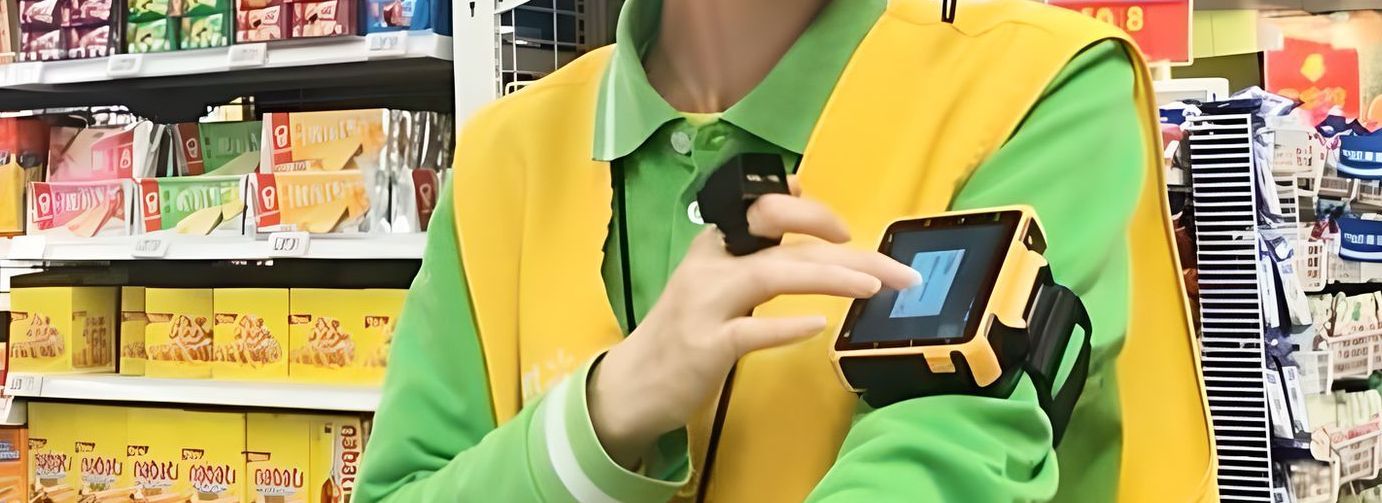
As retail chains transition into the O2O (online-to-offline) model, efficient and accurate order processing has become a core competitive advantage. The HYCO Ring Scanner and W563 Wearable Computer, as a powerful IoT device duo, work seamlessly to elevate the voice picking process. This perfect partnership revolutionizes traditional picking workflows, enhancing efficiency and optimizing operations, setting a new standard for retail efficiency.

In the era of Industry 4.0 and smart logistics, the competitive edge has shifted from "scale" to "efficiency." Often, the secret to efficiency lies in seemingly small tool innovations—like a ring-shaped barcode scanner. The HYCO Ring Scanner (represented by the W28 model) is a revolutionary tool that redefines traditional scanning with its ultra-lightweight design, powerful performance, and versatile adaptability. It unlocks a new “man-machine integration” work mode for industries like warehousing, logistics, and manufacturing.

With the advancement of technology, ring scanners are increasingly popular in industries such as logistics and retail. Due to their convenience and efficiency, ring scanners have become essential tools for many businesses to enhance productivity. However, some users may wonder if charging a ring scanner directly via USB could potentially damage the device. This article will address that concern.

Ottawa, March 21, 2025 — Lotwork has successfully concluded its exhibition at ProMat 2025, North America’s premier supply chain and logistics event. From March 17 to 20, Lotwork welcomed attendees to experience its latest wearable technologies and ultra-low-power consumption IoT innovations designed to boost efficiency and comfort in warehousing and debuted the innovative last-mile delivery solution from GHE: https://www.ghelmd.com/ . At this year’s event, Lotwork proudly returned as a Student Day Supporter , continuing its commitment to nurturing the next generation of supply chain leaders. Our team was thrilled to engage with students, professionals, and industry leaders alike, exchanging insights on how human-centred technology is transforming operations across the sector. We thank everyone who visited our booth and look forward to building new partnerships that drive more innovative, sustainable supply chains.

In today ’ s fast-paced supply chain, expiration date management is acritical challenge, particularly for industries dealing with perishable goodssuch as food, pharmaceuticals, and retail. Traditional methods often strugglewith inefficiencies, human errors, and sustainability concerns. Enter FEFOManager , a game-changing solution developed by Lotwork , designed to optimize First Expired, First Out (FEFO) workflows through AI powered automation, ultra-low-power IoT technology, and seamless WMS integration.
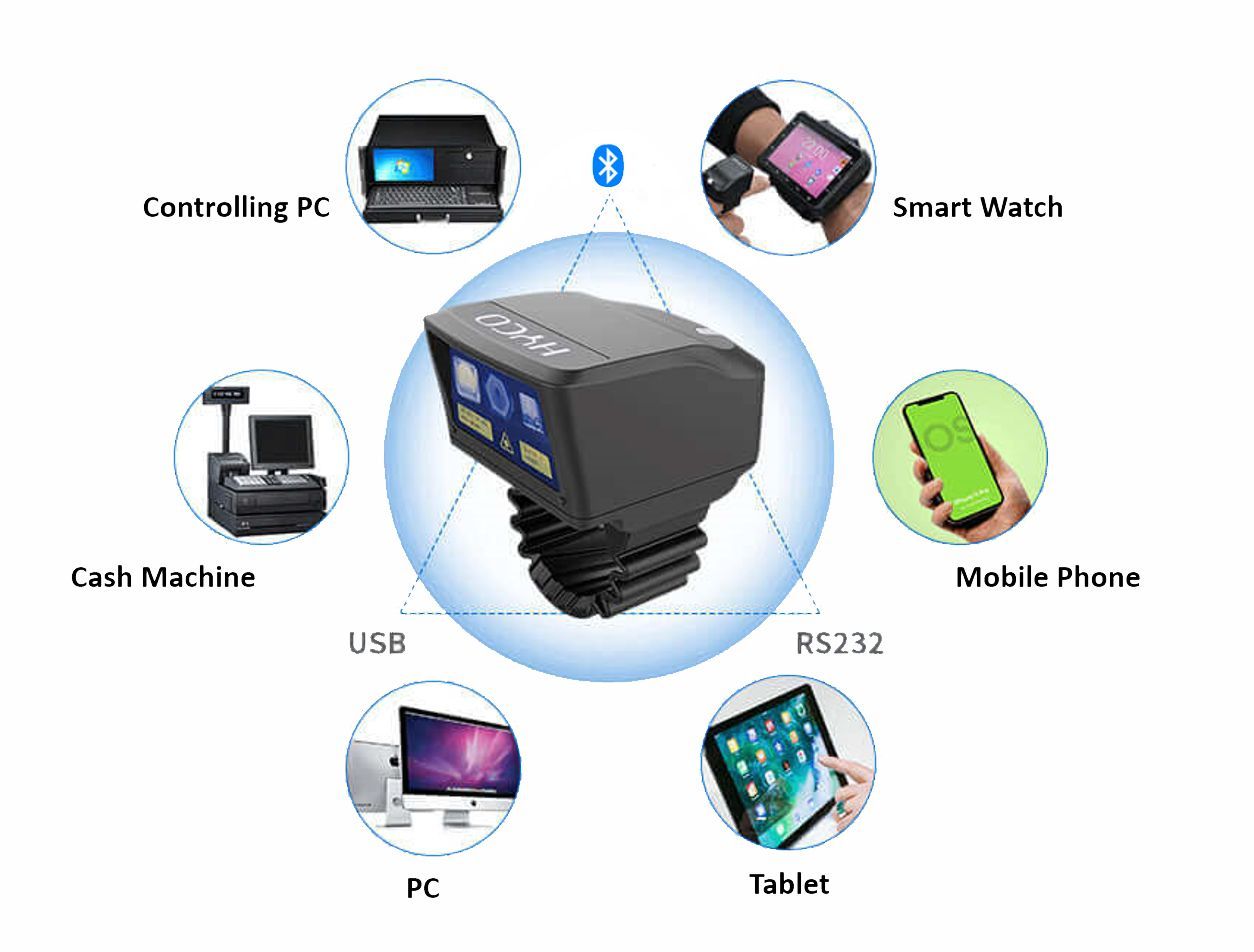
Hyco Ring Scanner is a powerful and versatile wearable device designed for seamless connectivity and optimized performance in a variety of work environments. Whether you’re using it with iOS, Windows, Android devices, computers, or wearable computers, this guide will walk you through the simple steps to connect your Hyco Ring Scanner. Connection Modes: HID and SPP Hyco Ring Scanner supports two primary connection modes: 1. HID (Human Interface Device): This mode allows the scanner to function like a keyboard, making it ideal for simple and quick data entry tasks. 2. SPP (Serial Port Profile): This mode is recommended for advanced applications that require more sophisticated communication between the scanner and your device. Connecting to iOS/Windows/Android Devices 1. Scan the Barcode: Use the Hyco Ring Scanner to scan the barcode in the user manual corresponding to your system (iOS, Windows, or Android). 2. Activate Bluetooth on Your Device: Navigate to the Bluetooth settings on your iOS, Windows, or Android device and ensure Bluetooth is turned on. 3. Pair the Devices: Look for the Hyco Ring Scanner’s serial number in the list of available devices and select it. After successful connection, the scanner will vibrate once when scanning a barcode successfully. If an error occurs, the scanner will vibrate three times to indicate the issue. Connecting to Computers 1. Connect the Charging Cradle: Plug the Hyco Ring Scanner’s charging cradle into your computer. Scan the Cradle 2. Barcode: Use the scanner to scan the barcode located on the charging cradle. 3. Confirm Connection: A successful connection will be indicated by the scanner flashing green once after scanning a barcode, and the charging cradle will beep once. Quick Connect with Hyco Wearable Computer Hyco Ring Scanner integrates seamlessly with Hyco Wearable Computers, offering a hassle-free connection process: 1. Open the "Ring Connect" App: On the Hyco Wearable Computer, open the "Ring Connect" app. 2. Scan the App Barcode: Use the Hyco Ring Scanner to scan the barcode displayed within the "Ring Connect" app. 3. Confirmation: Once paired, the devices will sync automatically for uninterrupted scanning operations. Adapting with Other Wearable Computers If you’re using a PDA from another brand, you can still benefit from the Hyco Ring Scanner’s efficient performance by downloading the Hyco Ring Connect App. This app enables the device to offer the same hassle-free connection process as the Hyco Wearable Computer. Conclusion The Hyco Ring Scanner’s plug-and-play functionality ensures seamless connectivity across devices, from smartphones to wearable computers. With its HID and SPP modes tailored to different needs and quick-pairing features, the scanner adapts effortlessly to your requirements. Maximize productivity and streamline operations by connecting your Hyco Ring Scanner today!

The rapid advancement of warehouse technology has made pick-to-light systems a top choice for businesses seeking to simplify operations and boost efficiency. Wireless pick-to-light systems, in particular, stand out due to their flexibility and ease of implementation. However, selecting the right system requires careful consideration. Here are ten things to keep in mind when choosing a wireless pick-to-light system:

As hospitals strive to enhance patient safety and operational efficiency, integrating Hello Kit into Barcode Medication Administration (BCMA) workflows offers unparalleled advantages. Combining the Hyco Ring Scanner and Hyco Wearable Computer, this solution redefines how healthcare professionals manage medication administration. Solution Overview Hello Kit is a holistic BCMA solution tailored to meet the rigorous demands of healthcare settings. It optimizes medication administration by offering: Efficient Workflow Integration: A seamless connection to existing BCMA systems ensures minimal disruption during implementation. Hygienic and Durable Hardware: Designed for ease of cleaning and longevity. Real-Time Data Synchronization: Ensures up-to-date information for medication and patient records.
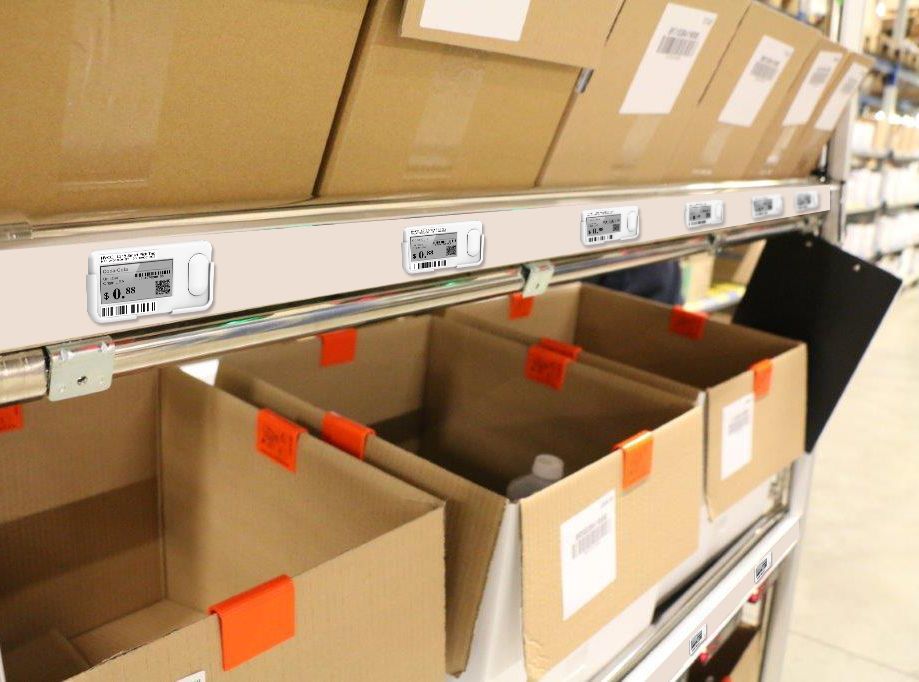
Everything You Need to Know About Wireless Light Tags and Pick-to-Light Solutions In today’s fast-paced pharmaceutical, e-commerce, and supply chain industry, efficiency and accuracy are critical to success. Rechargeable wireless light tags and wireless pick-to-light solutions are transforming how businesses handle inventory management, order fulfillment, and workflow optimization. By eliminating the constraints of traditional wired systems and disposable batteries, these solutions offer enhanced flexibility, sustainability, and long-term cost savings.. What Are Rechargeable Wireless Light Tags? Rechargeable wireless light tags are compact, battery-powered indicators that can be attached to storage locations, bins, or individual products. These tags illuminate to guide workers to the correct items, reducing picking errors and streamlining the fulfillment process. Unlike traditional light-guided picking systems that rely on fixed wiring or replaceable batteries, rechargeable wireless light tags provide a sustainable, cost-effective, and highly adaptable alternative.
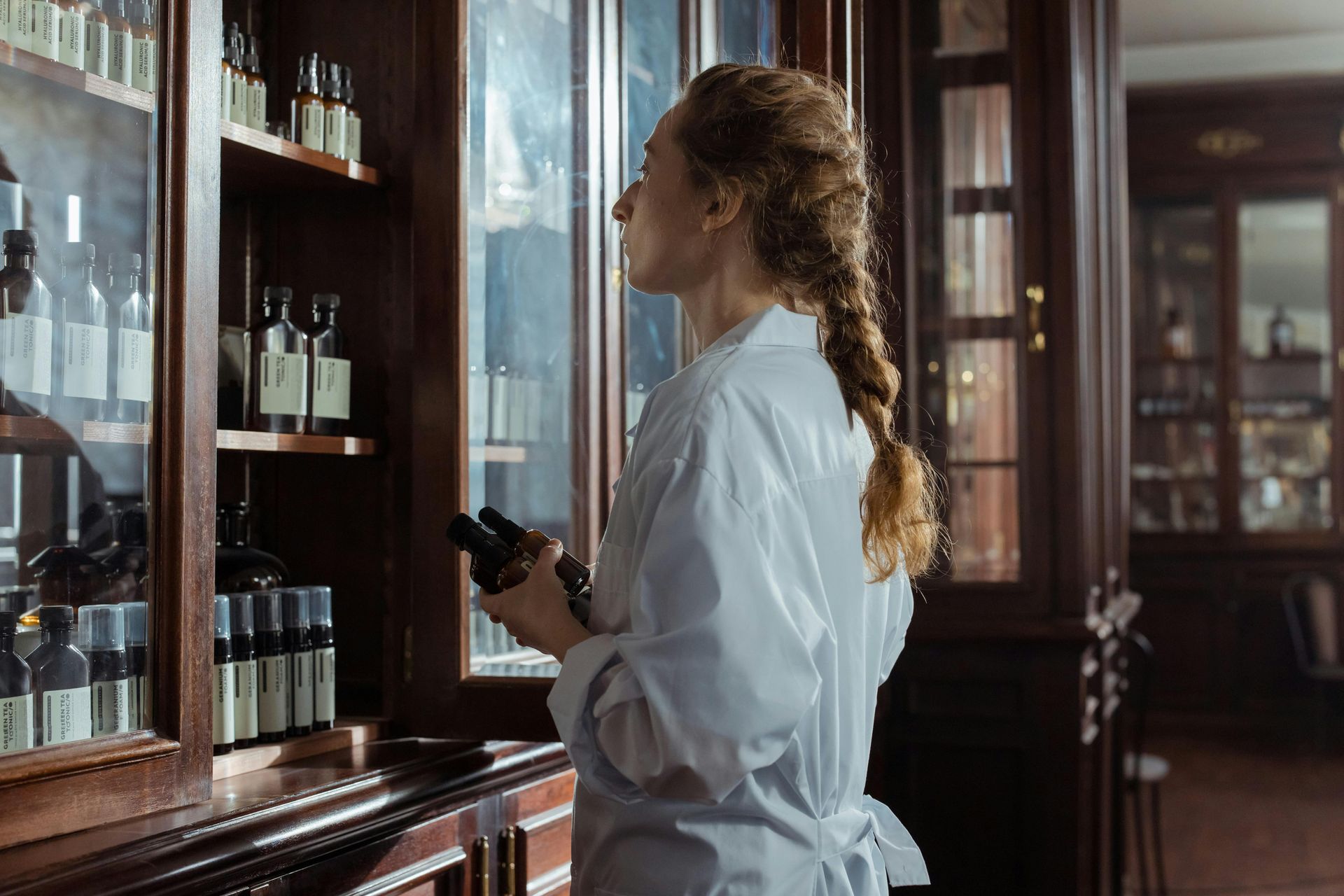
In today's fast-paced pharmaceutical industry, ensuring accuracy, efficiency, and compliance in drug-picking processes is critical. The Smart Drug Picking Solution offers a cutting-edge approach, integrating Wireless Light Tags (e.g., L218)and real-time data synchronization to streamline operations while reducing errors and costs. Key Features of the L218 Wireless Light tag Smart Drug Picking Solution Precise Inventory Management Equipped with E-ink displays and multi-colour LED indicators, the Smart Drug Picking Solution ensures that each drug's location and information are accurately displayed. The real-time updates minimize human error, ensuring that healthcare providers and pharmacies always retrieve the correct medication. Enhanced Picking Efficiency Using visual and light-based guidance, people can quickly identify items that are nearing expiration or require priority picking. This reduces search time, boosts operational efficiency, and guarantees compliance with first-expired-first-out (FEFO) policies. Wireless Integration The system leverages low-power wireless communication to connect seamlessly with inventory management systems. A single control unit can handle thousands of tags, eliminating the need for extensive wiring and setup complexity. Eco-Friendly and Cost-Effective With rechargeable batteries lasting up to a year and recyclable components, this solution supports sustainability goals while lowering maintenance costs. Its long lifespan makes it ideal for large-scale pharmaceutical operations.

When it comes to the logistics of last-mile delivery, our research has found that workers spend nearly 80 percent of their time “searching” in the delivery station or sort center. Not only is the amount of time spent on searching a tremendous waste of human resources, it’s also a major cause of lost, damaged, or expired goods in package delivery.

Enhancing Pharmaceutical Delivery Accuracy with Wireless Light Tags In the pharmaceutical industry, accuracy and precision are of paramount importance, especially when it comes to the delivery of medication. Even the smallest error in packaging or shipping can lead to significant consequences, including delays in patient care, financial losses, and damage to a company’s reputation. To address these challenges, the integration of Wireless Light Tags during the packaging process has emerged as an innovative solution that significantly improves the accuracy and efficiency of pharmaceutical deliveries.
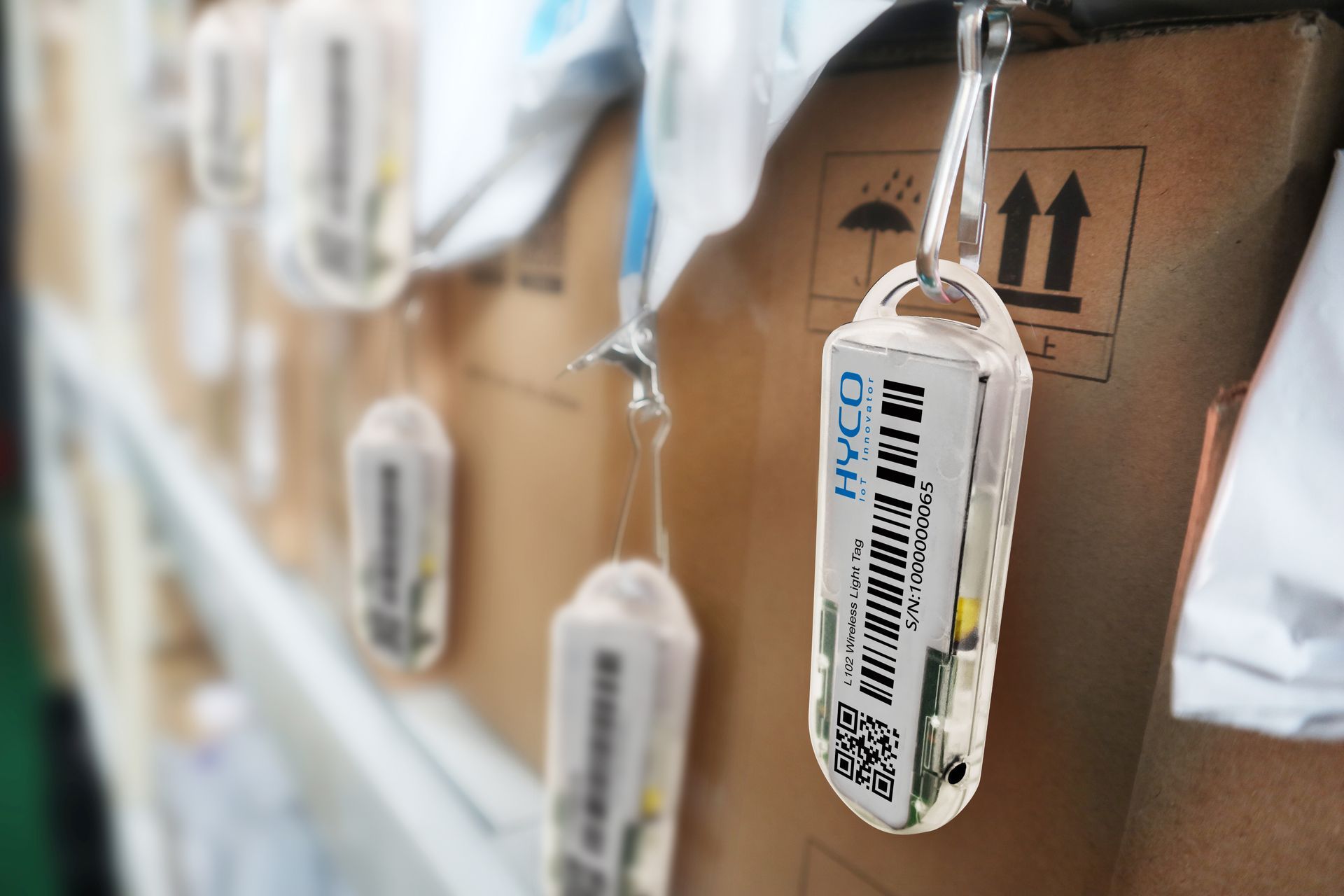
Wireless Light Tags represent a significant technological advancement over traditional light bars in the realm of asset tracking and inventory management. By providing a flexible, precise, and energy-efficient way to locate items quickly, Wireless Light Tags help businesses across various industries improve efficiency, reduce costs, and enhance overall operational effectiveness. As IoT technology continues to evolve, the role of Wireless Light Tags in optimizing logistics and asset management will likely become even more indispensable.
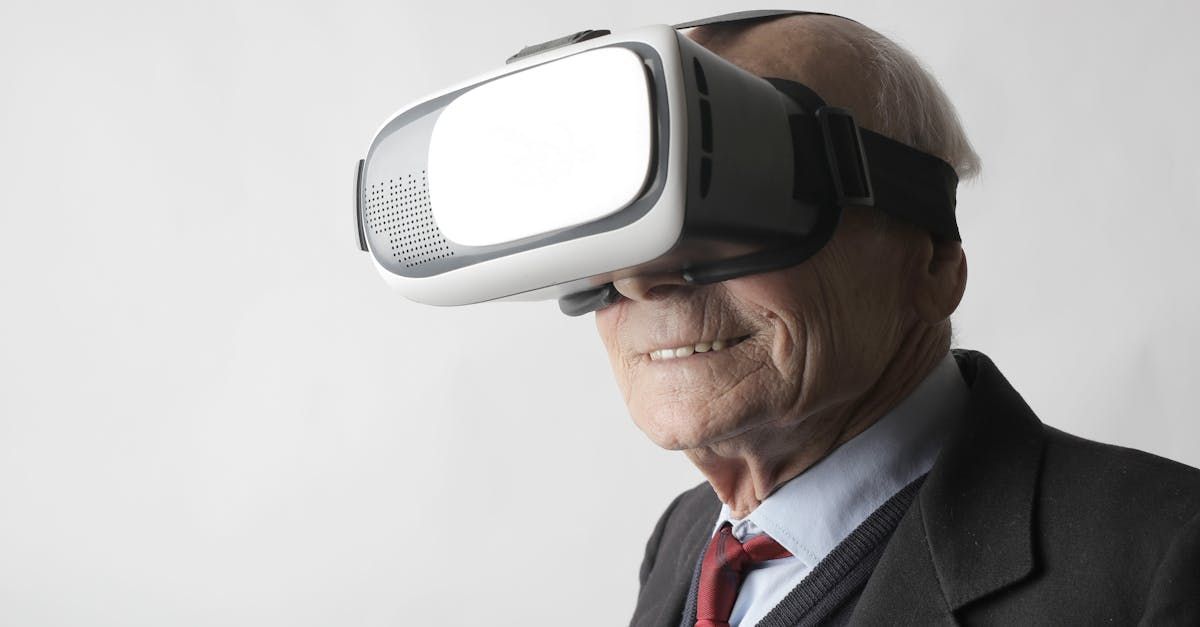
Does Your Wearable Device Maker Meet These Universal Standards? When it comes to developing wearable devices for people, companies fail at that mission if they don’t adhere to the principle of “human-centered” product design. That fundamental principle should inform all wearable design work rather than basing product development around the attainment of proprietary technology or economizing on resources and materials. In developing any wearable device, what should be first and foremost in the minds of the product makers is user safety, followed by user experience and reliability. Those three criteria need to be applied across all product forms and taken into account for all use-case scenarios.

Ultra-low-power technology that allows workers to work safely, easily, and efficiently may take decades to develop, but it is one of the most cost-efficient, environmentally friendly, and lightweight options on the market. The goal of low-energy devices is to significantly decrease the demand for electrical energy, as higher electrical usage increases financial and environmental costs. Using ultra-low-energy ring scanners promotes energy conservation and environmental protection.
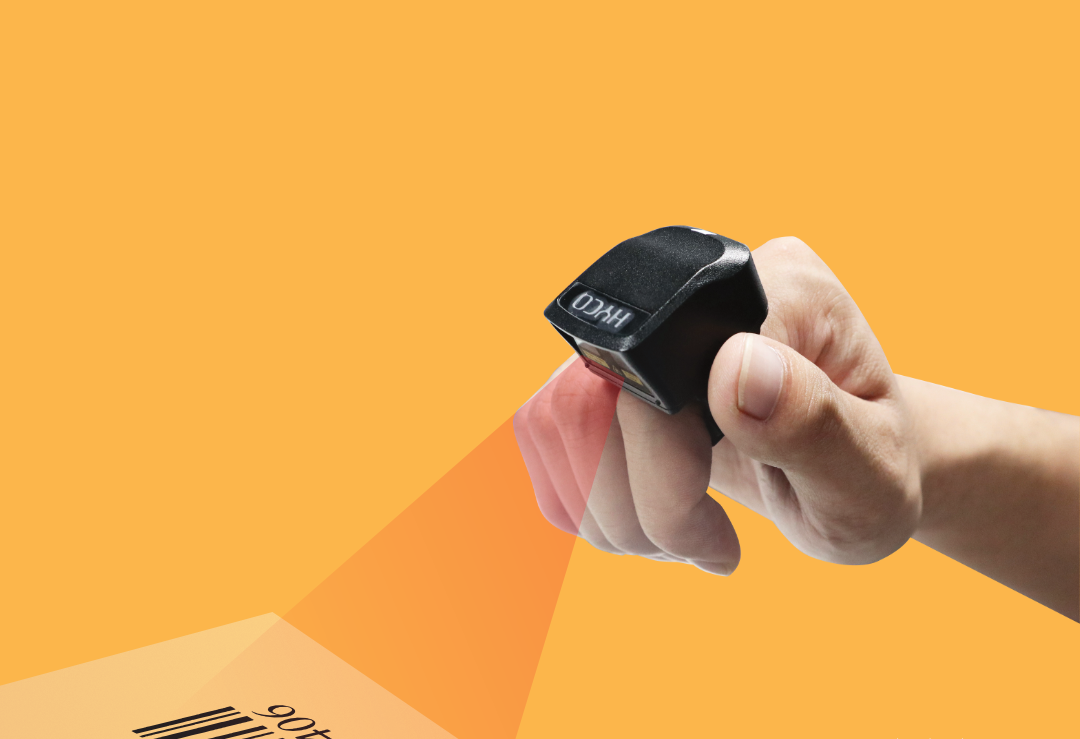
A ring scanner is a convenient wearable device that effortlessly scans barcodes and is worn on the finger like a ring. Designed to offer a hands-free solution, ring scanners enable workers to move freely and complete tasks without the constant inconvenience of picking up and putting down a handheld scanner. This results in efficient and accurate barcode scanning capability, streamlining the scanning process and enhancing overall productivity.

Efficiency and productivity are vital components of a successful work environment. Being on the job site often entails participating in fast-paced and physically demanding tasks, which leads to an increased risk of work-related injuries. According to recent statistics from the International Labour Organization (ILO), the toll of occupational injuries and diseases is alarming, with over 2.3 million fatalities occurring annually worldwide. These numbers underscore the urgent need to invest in solutions that enhance workplace safety and efficiency. Investing in the right scanning solutions can significantly impact your bottom line by reducing theses workplace injuries, while minimizing downtime and optimizing overall efficiency.

At Lotwork, we are committed to promoting workplace well-being and productivity by addressing Work-Related Musculoskeletal Disorders (WMSDs). These disorders not only affect the health and comfort of employees, but also have significant cost implications for employers. According to the Occupational Safety and Health Administration (OHSA), in 2010, WMSDs have become one of the most prevalent occupational health hazards in the United States. Approximately 2 million American workers suffer from work-related musculoskeletal injuries each year, resulting in around 600,000 lost workdays. Shockingly, 1 out of every 3 dollars spent on workers' compensation in the U.S. is attributed to inadequate ergonomic protections. The direct costs of WMSDs in the United States range from $15 to $20 billion annually, with the total costs reaching $45 to $54 billion.

